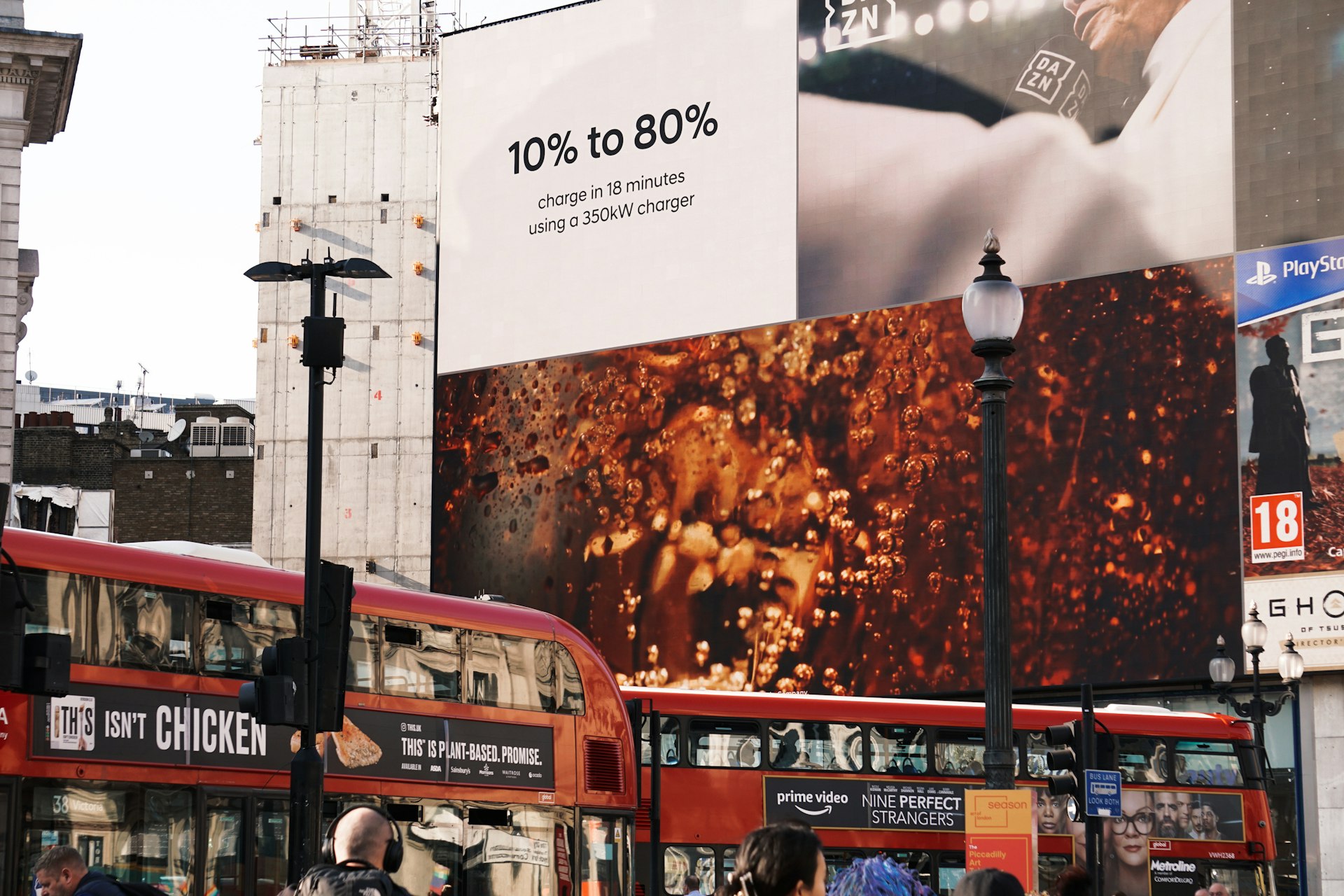How Branded Entertainment Is Transforming Digital Storytelling in 2025

Photo by Markus Winkler on Unsplash
The Digital Shift: From Interruptive Ads to Branded Entertainment
Traditional digital advertising is losing ground. Audiences are increasingly ignoring, skipping, or outright blocking ads, prompting a major shift in marketing strategies. In 2025, branded entertainment has emerged as a leading approach: brands are evolving from advertisers into storytellers, focusing on narrative-driven, immersive content that entertains and connects rather than interrupts [4] . This change isn’t just about keeping up with trends-it’s an essential evolution for brands wanting to stay relevant in an era where consumers crave genuine engagement over traditional sales pitches.
Why Branded Entertainment Resonates in Digital Storytelling
Branded entertainment is more than product placement or sponsored content. It’s the art of weaving a brand’s core message into stories that entertain, inform, and inspire. In today’s digital environment, this approach matters for several reasons:
- Authenticity: Modern audiences want real, unpolished narratives. Behind-the-scenes stories, raw moments, and genuine voices are valued far more than scripted perfection [3] .
- Engagement: Interactive and immersive storytelling formats-think AR/VR experiences, gamified campaigns, and choose-your-own-adventure videos-encourage active participation instead of passive viewing [2] .
- Community: Content that invites user-generated contributions helps brands build communities and loyalty, as audiences feel seen and heard [5] .
- Personalization: AI and data analytics enable brands to deliver hyper-targeted narratives, making each interaction feel personal and relevant [1] .
Key Trends in Branded Digital Storytelling
The landscape of digital storytelling is changing rapidly, driven by both technological advances and evolving consumer expectations. Here are the dominant trends shaping branded entertainment in 2025:
1. Micro-Narratives and Short-Form Storytelling
Consumers’ attention spans are shorter than ever, especially on mobile platforms. Brands are meeting this challenge with micro-moments -powerful, concise stories that capture attention in under a minute. These snippets can be distributed across social media, messaging apps, and even wearable devices. To leverage this trend, brands should:
- Break complex messages into a series of short, compelling scenes
- Use vertical video formats tailored for mobile viewing
- Test different story arcs to see which resonate most with specific audiences
This approach boosts engagement while maximizing reach [3] .
2. Authentic, Imperfect Storytelling
Consumers have grown weary of overly polished, “too perfect” content. They now seek out authentic stories that reveal the human side of brands. Examples include behind-the-scenes videos, employee spotlights, and real-life customer journeys. To embrace authenticity:
- Encourage employees and customers to share their genuine experiences
- Showcase both successes and challenges-transparency builds trust
- Use unfiltered visuals and spontaneous content to create relatability
This strategy not only builds credibility but also fosters a deeper emotional connection [5] .
3. Interactive and Immersive Experiences
Modern branded storytelling is no longer a one-way conversation. Interactive formats-such as AR filters, VR environments, and gamified campaigns-allow audiences to influence content and even become central to the story. To implement interactive storytelling:
- Experiment with AR/VR platforms to create immersive brand worlds
- Incorporate quizzes, polls, and choose-your-own-adventure videos on your website and social channels
- Invite your audience to co-create content or participate in branded challenges
These approaches deepen engagement and make stories memorable [2] .
4. Hyper-Personalization Powered by AI
Artificial intelligence is transforming how brands tailor content for individual viewers. AI-driven analytics allow for dynamic storytelling, where scripts, visuals, and even music can adapt in real time to user preferences or behaviors. To start personalizing your branded content:
- Use AI tools to analyze audience engagement and segment your viewers
- Create multiple story paths and let the technology serve the most relevant one to each user
- Test dynamic ad insertion to make content feel unique for each viewer
This enables brands to deliver more relevant, timely, and resonant experiences [1] .
5. User-Generated Content (UGC) and Community Building
User-generated content is a cornerstone of modern branded entertainment. Audiences are far more likely to trust and engage with content created by their peers. Successful brands actively encourage UGC through contests, challenges, and community features. To encourage UGC:
- Create branded hashtags and invite users to share their stories
- Feature top user contributions on your official channels
- Offer incentives, recognition, or rewards for the best submissions
Campaigns built around UGC foster loyalty and authenticity [5] .

Photo by Youna Talluri on Unsplash
Practical Steps: Implementing Branded Entertainment in Your Strategy
Transitioning to branded entertainment requires a holistic approach. Brands should consider these actionable steps:
- Define Your Brand Story and Values : Identify the core message you want to convey and the emotions you want to evoke. What does your brand stand for? Why should audiences care?
- Choose the Right Formats : Based on your audience’s preferences and behaviors, select storytelling formats that best fit your goals: short-form videos, podcasts, interactive experiences, etc.
- Leverage Technology : Invest in AI tools, AR/VR solutions, and data analytics platforms to personalize and amplify your stories.
- Foster Authenticity : Empower real people-employees, customers, fans-to be the faces and voices of your brand. Share genuine experiences, not just polished ads.
- Encourage Participation : Build campaigns that invite audience involvement, whether through interactive features, user-generated content, or co-creation initiatives.
- Measure and Adapt : Track engagement, feedback, and conversion metrics. Use these insights to continually refine your storytelling and maximize impact.
Overcoming Challenges in Branded Digital Storytelling
While the benefits are clear, brands may encounter several challenges as they embrace branded entertainment:
- Balancing Authenticity and Control: Allowing more user-generated or unfiltered content can feel risky, but strict control can stifle authenticity.
- Resource Intensiveness: Creating high-quality, immersive stories can require significant investment in technology and creative talent.
- Adapting to Rapid Change: Keeping up with new platforms, formats, and algorithms demands ongoing learning and agility.
To address these challenges, brands should:
- Start small with pilot projects and scale up as you learn what works
- Partner with experienced creators, agencies, or technology providers
- Stay informed about emerging trends by following industry leaders and resources
Accessing Branded Entertainment Resources and Opportunities
If your organization is ready to adopt branded entertainment, you can start by:
- Consulting digital marketing agencies with a proven track record in interactive and narrative-driven content
- Exploring AR/VR development studios for immersive experiences
- Using AI-powered content creation tools (many platforms, such as OpenAI and Google, offer customizable solutions-search for “AI storytelling tools” to compare features)
- Attending industry conferences or webinars focused on content marketing and branded storytelling
- Networking with creators and influencers who specialize in authentic digital narratives
For more information on industry best practices and trends, you can refer to reputable marketing publications, technology news outlets, and the official websites of leading creative tech companies. Always verify the credibility and reviews of any service provider before engagement.
Summary: The Path Forward in Branded Digital Storytelling
The rise of branded entertainment marks a fundamental transformation in digital storytelling. Success lies in embracing authenticity, interactivity, and personalization while leveraging the latest technologies and remaining true to your brand’s values. By following the actionable strategies outlined here, you can create content that doesn’t just reach audiences-it moves them.
References
- [1] Haikai Media (2025). The Future of Digital Storytelling: Trends to Watch in 2025.
- [2] Go Viral Digital (2025). Interactive Storytelling in 2025: Next-Level Engagement.
- [3] HT Media (2025). Branded Content Trends in 2025: A CMO’s Playbook.
- [4] Magix Entertainment (2025). Branded Entertainment: The Digital Marketing trends of 2025.
- [5] FeedHive (2025). The Future of Social Media Content Creation: Trends to Watch in 2025.
MORE FROM eboxgo.com













